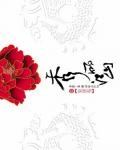The second volume is full of glory and splendor in the capital, and the spirit is full of vitality in the foggy city. Chapter 333 It's Not Over Yet
This chapter's subtitle: Shame, Shame
Comrade once said, “The October Revolution brought us Marxism-Leninism with the sound of a cannon.
But Comrade Lenin, who led the October Revolution, said that the explosion on Piccadilly awakened the colonial peoples of the world!
The above is the first sentence of his signed article published on the front page of Pravda on July 25.
In fact, on July 24 and the following days (due to time differences), major newspapers around the world devoted extensive coverage to reporting on the "723 Incident."
Interestingly, the headlines of newspapers in the UK and other countries and regions are all related to "SHAME".
Newspapers outside the UK gloated and called the "723 Incident" a disgrace to the British Empire, and some even quoted Ms. Lin Huiyin's words "SHAME ON YOU" as a banner headline.
Even Japan, Britain's ally at the time, seemed to have forgotten the kidnapping of the Crown Prince in its press. The three major comprehensive newspapers, the Yomiuri Shimbun, the Asahi Shimbun, and the Mainichi Shimbun, all used the word "Shame" as the headline on their front pages.
The same was true in other countries. A relatively obscure Munich tabloid, the People's Observer, published an article written by a relatively obscure figure in which the author mocked the British Empire.
This person was none other than Hitler. This incident had a profound effect on the Chinese people. So, after coming to power, he even hoped to rekindle the "German-American-Chinese triangular alliance" that the Qing government had once advocated.
However, the successive heads of the military advisory groups he sent to China poured cold water on his thinking. They told Hitler that Chinese soldiers would excel after adequate nutrition and training, but the Chinese commander was a big, big, big "beep." Only then did he turn to seeking cooperation with Japan.
Mussolini also published a similar article in his newspaper, Il Volo , but the fascist leader used more polite words than Hitler.
Globally, the most detailed coverage of the "723 Incident" is undoubtedly provided by New York's Le Monde.
Thanks to the first-hand interviews on the scene by Ms. Emma Pulitzer, a rising star of the Pulitzer family, the first newspaper family in the United States, this newspaper, which was almost squeezed out of the four major newspapers in New York, has been revived and has become the largest-circulation and most internationally reputable newspaper in the United States, without a doubt.
In fact, Chuis heard that local British newspapers, such as The Times, The Guardian and The Daily Telegraph, also used the word "SHAME".
Of course, they were not criticizing their own country's colonial policy, but rather making a big fuss... perhaps hysteria would be a more accurate word. These newspapers criticized Scotland Yard and the then Chief Commissioner of Police, Sir Holwood, to the point of being completely destroyed.
Although their words were very harsh and even suspected of personal attacks, the London Metropolitan Police should indeed be blamed.
First of all, Scotland Yard has the responsibility to protect members of the royal family and senior cabinet officials.
In this incident, not to mention the security of the Japanese embassy, the Prince of Wales and two cabinet members were easily kidnapped.
Secondly, the on-site commander, Sir Holwood, performed so poorly during this period that it was speechless.
He and his policemen were like cows being led by the nose by the hijackers. Not only did they allow the Hibiscus Legion to issue that important statement, but the hijackers also easily slipped away through the sewer under the noses of Scotland Yard.
Because the kidnappers had released a large number of hostages and blown up the internal passages of the Japanese Legation, by the time the London police discovered the hole in the basement, two or three hours had passed. The Hibiscus Army had already fled.
Finally, British public opinion questioned the entire police system of the British Empire.
Because just after July 24, the Irish Republican Army issued a public statement that the two Crown Princes had fallen into their hands and had already arrived in Ireland!
In other words, the Prince of Wales and Prince Di Gong were transferred right after the kidnapping attempt on July 23. The subsequent actions of the Hibiscus Corps were merely smokescreens to divert attention.
This also shows that there are deep connections between the Hibiscus Legion and the Irish Republican Army, and it is even possible that they are a single gang, because both Their Royal Highnesses later claimed that they saw white people among the kidnappers.
But no matter whether the kidnappers were Chinese or Irish, they had already established a secret underground network in the UK. This network not only supported them in launching the "723 Incident", but also helped them to easily transfer two living people.
How can this not make the British people believe in the work and capabilities of the British police?
How can this not make the British worry about the safety of their country and themselves?
How could this not make the British feel that this incident was a great shame for their country?
Of course, this distrust was also directed at the then-governing Liberal Party coalition government led by George Lloyd, which is why Prime Minister Lloyd resigned in disgrace that year..
He was succeeded as Prime Minister by Andrew Bernard Law of the Conservative Party. Prime Minister Law was born in Canada and is the only Prime Minister in British history who was not born in the British Isles.
The Liberal Party never recovered from this, and even the Labor Party's seats in Parliament far exceeded its own.
Because of limited communication means, our Chinese press's coverage of the "723 Incident" all came from the Beijing government's Ministry of Foreign Affairs.
This was probably the most pleasant cooperation between the government and the press in the history of the Republic of China.
Yan Huiqing, the then Minister of Foreign Affairs, was a professional diplomat. He realized that it would be more beneficial for the government to turn the spearhead towards Britain rather than Japan.
The subsequent developments were just as he had anticipated. While the student movement sparked by the incident has not yet subsided, with calls for a "boycott of Japanese goods" resurfacing, the main demand has expanded from "return Qingdao to us" to "recover the concessions." This has led to a slight easing of relations between China and Japan.
In these reports, two Chinese names were frequently mentioned. One was Ms. Lin Huiyin, who naturally spoke for the hibiscus army. Newspapers everywhere, except in Britain, hailed her as the most beautiful Oriental woman.
The other was Mr. Yuan Yanshu, who also came to Ireland with the two Crown Princes.
At this time, Gaizo magazine had already published his "Rural Teacher," and together with his previous work "Wives and Concubines," these two novels earned him the title of "the first writer of vernacular novels" even though he had not yet returned to China..."
——Excerpt from "The Global Newspaper Industry in the 723 Incident"






